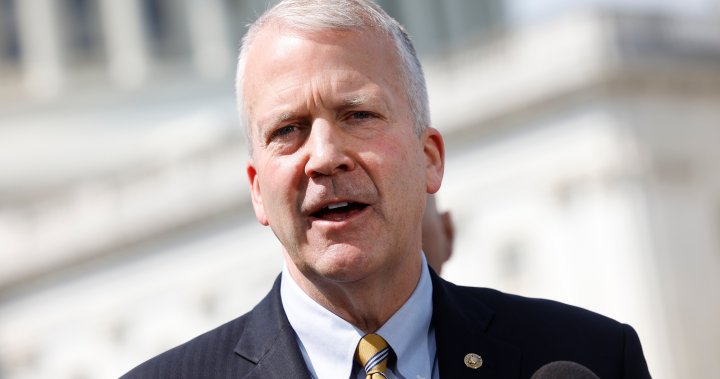A senior U.S. military official who is likely to become the head of NORAD has committed to having “tough conversations” with Canada regarding defense spending. Lt.-Gen. Gregory Guillot, who is U.S. President Joe Biden’s nominee to run NORAD, made this pledge during a confirmation hearing when questioned by Alaska Sen. Dan Sullivan. Sullivan expressed his frustration with Canada’s defense spending, calling it “incredibly disappointing,” and stating that Americans get frustrated when their allies do not contribute enough. Sullivan asked Guillot if he could have discussions with Canada about the importance of supporting NATO and missile defense for North America. Guillot responded positively, saying that Sullivan could count on him to do that.
Prime Minister Justin Trudeau defended Canada’s defense contributions, highlighting the investments made in NORAD modernization and NATO commitments. The grilling occurred a day after Trudeau named Bill Blair as the head of the Department of National Defense and the Canadian Armed Forces. This move has raised concerns among defense watchers, who question the Liberals’ commitment to military reform.
Canada has faced pressure from NATO allies to increase defense spending to meet the target of two percent of GDP. Canada has agreed to this target but has not provided a plan to achieve it, with current spending at around 1.3 percent. Despite these criticisms, Trudeau and Anand argue that Canada is going above and beyond to support Ukraine.
Regarding NORAD, Canada has pledged around $40 billion for modernization, as well as investments in F-35 fighter jets and new naval ships. During the hearing, Guillot emphasized the importance of defense in the Arctic, stating that almost any threat to the homeland comes through the Arctic.
Canada’s commitment to security and global defense is described as “ironclad,” with significant investments being made to equip the Canadian Armed Forces. Trudeau recently announced commitments to NATO, including hosting Ukrainian officer cadets for training and adding troops in Latvia.
While defense spending is often used to judge a country’s commitment to global security, U.S. Ambassador to Canada David Cohen argues that this is a “bad mistake.” He believes that Canada’s support for Ukraine and its efforts in Arctic defense should carry more weight in the policy debate.
Overall, the discussions between the U.S. and Canada regarding defense spending and NATO commitments continue, with both countries vowing to cooperate and address these concerns.

